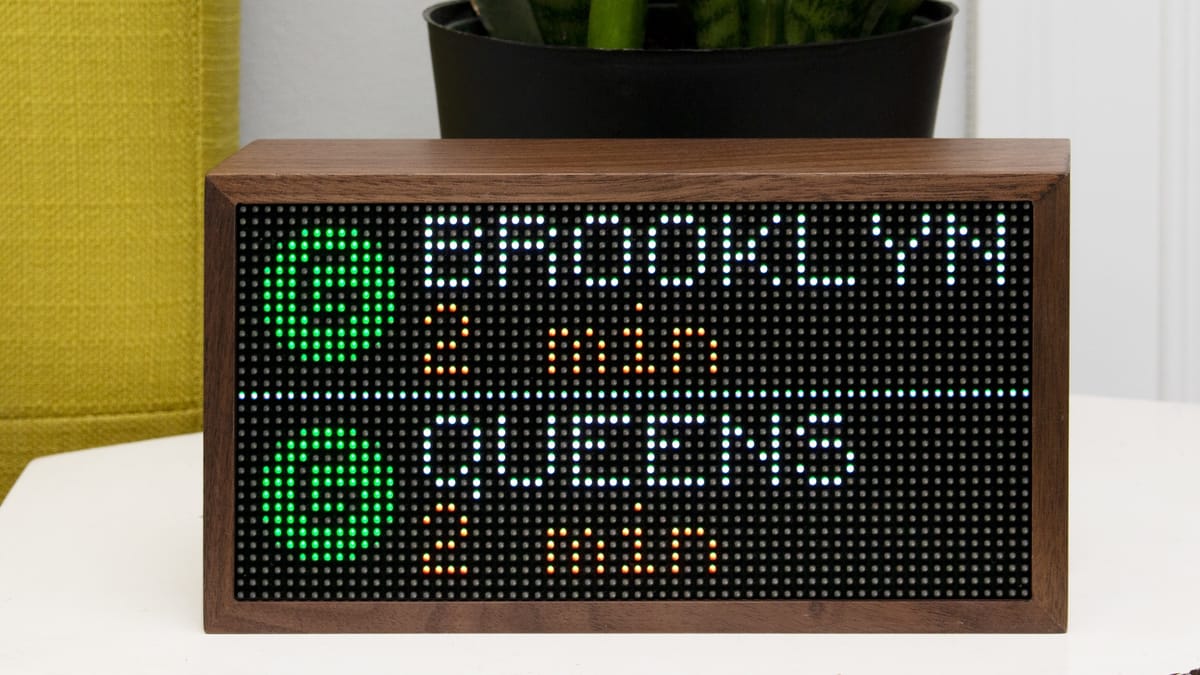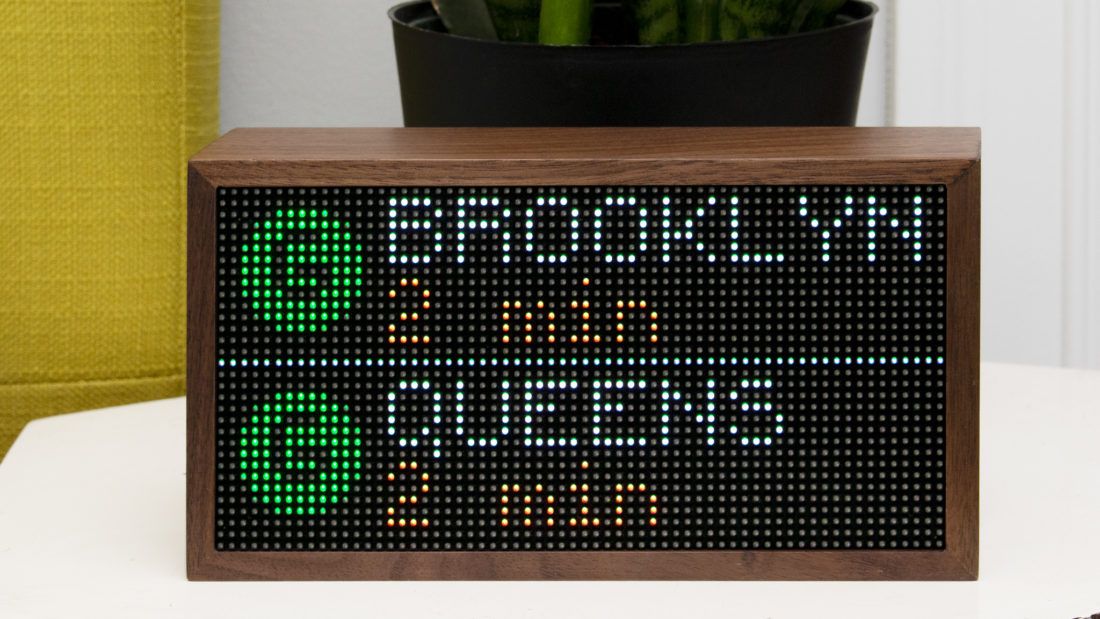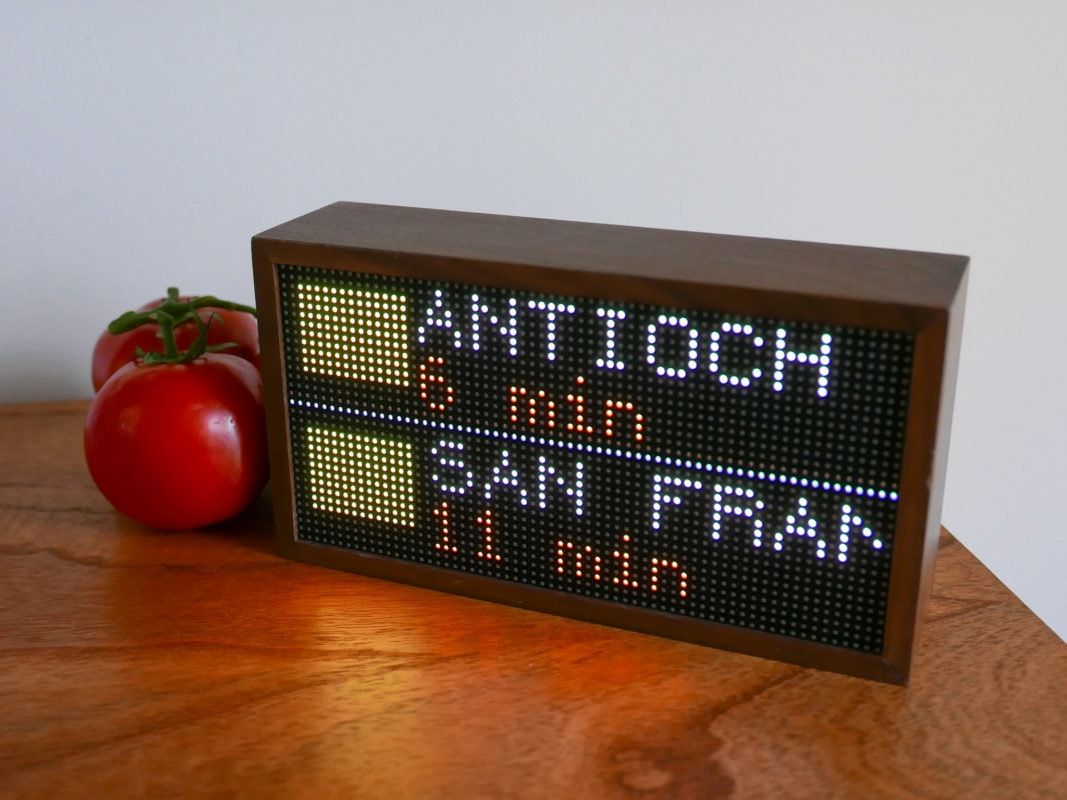Brooklyn Startup Company Brings Retro Design To New Smart Clock


A new type of smart device will be hitting the market soon, though its design looks like something out of the 1980s.
The smart clock, boasting a retro design, LED screen, all in a trendy North American walnut wood case, can tell you when the next G train is about to arrive, the weather, stocks, Tweets and more, and is the brainchild of Brooklyn residents Rohan Singh and Mats Linander who worked together as engineers at Spotify.
The duo quit their jobs to focus on their startup, named Tidbyt, full-time, just before the pandemic hit.
“We’d worked together for years and years. We’d always been looking out for something like Tidbyt. What would be the next thing we’d want to do?” said Singh.
Singh explains that the idea was to create a low distraction device to offer an alternative to checking a smartphone while keeping up to date with the things that matter to them, like the subway schedule.
“As New Yorkers, we’re all always taking the subway. So that [train times] was the first thing that I wanted to have,” said Singh.
However, after Singh built the prototype at his apartment in Bed-Stuy, he and Linander began to imagine different uses for Tidbyt – weather updates, stocks, and Tweets. Since then, the two have been building prototypes and doing product development at a shared workspace in Bed-Stuy.
“Everyone has their own thing that they want on it. Whether it’s their calendar or something really niche, we have people who want (to know different) aircraft that are flying overhead or people who are into fishing, and they want to know what catches a fish in a lake nearby,” said Singh.

From there, the founders realized that they could build their devices so that everyone could have their own niche things on them. After the device has arrived at a customer’s home, through an app available on Android or IOS phones, the user can customize their clock and pick what they want to be displayed on it, which will then are cycled through its screen one-by-one.
The device is open-platform so that anyone can code their own apps for it.
“We’ve already had some people who [have] written a new functionality for it, some of our beta customers. I’m excited to keep adding functionality over time,” he added.
After going through a round of beta users and receiving positive feedback, Tidbyt launched its Kickstarter campaign on March 16 with hopes of raising $40,000. In just over two weeks, they raised $651,609 – more than 16 times their original goal.
“It feels great to see so much support for the idea and the product, and I’m super thankful for the folks who are supporting us,” said Singh.
“Manufacturing has been one of the sectors that were the most affected,” he added.
Tidbyt’s production run is being manufactured in Shenzhen, China, said Singh.
“Everything’s taken longer, just getting prototypes, getting factory samples, shipping stuff over, building in our time frame,” said Singh. “Usually goods take one month to get from a factory to a warehouse in LA. Now, we’re having to factor in two months and then other weird things too. It’s been tough, but we’re making it work,” he added.
Tidbyt’s first batch will be available this September to Kickstarter campaign funders for $159 before being made available at a retail price of $199.
“Definitely wasn’t the year I’d hoped to have after quitting Spotify,” said Linander, “The pandemic made everything weird and feel extra scary, so now this unexpected success is really great.”



